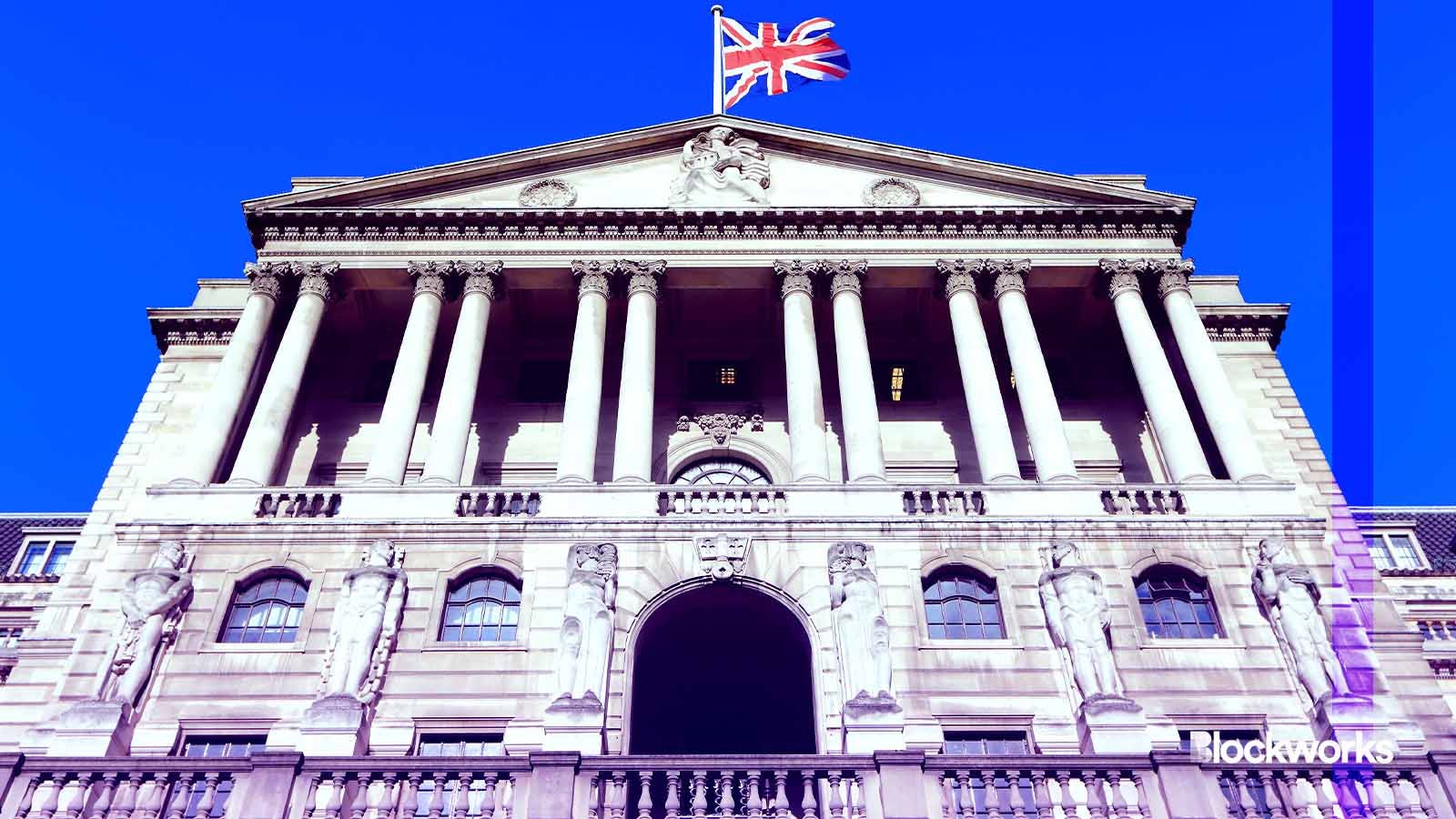Even the Bank of England is part of a shift to blockchain use cases
Fnality’s new network for wholesale payments and tokenized real-world assets reflects TradFi’s continued use of blockchain

aslysun/Shutterstock modified by Blockworks
A liquidity management network for wholesale payments and tokenized real-world assets took a step forward this week as the use of blockchain tech continues to reverberate around the traditional finance space.
Financial firms Lloyds Banking Group, Banco Santander and UBS took part in the new payment system, launched by blockchain payments startup Fnality.
Via the Sterling Fnality Payment System, the live payments took place in a Fnality-held omnibus account within the Bank of England’s real-time gross settlement service (RTGS), Fnality said in a Thursday news release.
The UK central bank said in April 2021 that it would allow RTGS to interface with more payment systems, such as ones that use distributed ledger technology.
Read more: TradFi, DeFi convergence continues through tokenizing real-world assets
The latest payments point to a future utilizing new digital models to allow transactions “in both wholesale financial markets and emerging tokenized asset markets,” the company added.
The launch comes after the Sterling Fnality Payment System was recognized by HM Treasury as a regulated payment system in August 2022, bringing it into the remit of the Bank of England and the UK’s Payment Systems Regulator.
“As we step into 2024, our focus sharpens on scaling up operations within a managed and approved framework as set out by the Bank of England, and steadily progressing towards unlocking new market use cases,” Fnality UK CEO Angus Fletcher said in a statement.
Fnality raised $95 million last month from Goldman Sachs, BNP Paribas and others. The startup creates tokenized versions of major currencies — including US dollars, euros, British pounds, Canadian dollars and Japanese yen — that are collateralized by cash held at central banks.
These payments are the latest example of blockchain technology becoming more prevalent in the traditional finance realm.
JPMorgan has for years been exploring tokenization and blockchain initiatives, facilitating a collateral transaction between BlackRock and Barclays in October via a decentralized application. The company also recently unveiled a programmable payments offering for blockchain-based accounts on the permissioned JPM Coin System.
Most big financial institutions are exploring use cases of tokenization, according to Samir Kerbage, chief investment officer at Brazil-based asset manager Hashdex — citing conversations with such companies.
“We’re seeing more and more of those use cases coming to market, especially when we’re talking about tokenizing real-world assets and bringing those assets to the blockchain,” Kerbage said during a Wednesday webinar.
21.co research analyst Carlos Gonzalez Campo said during a separate Wednesday webinar that 2023 represented an “experimental stage” for tokenization.
“Moving on into 2024 I think what you can expect is more…moving things into production and actually scaling it,” he added. “I think you will have some challenges to achieve that, namely cross-chain communication.
The Bank of England is set to assess the Sterling Fnality Payment System’s initial operations “against regulatory expectations as we scale up to commercial operations,” Fnality said.
A central bank spokesperson did not immediately return a request for comment.
The House of Commons Treasury Committee advised the Bank of England and HM Treasury to thoughtfully consider the introduction of a central bank digital currency (CBDC) in the UK.
Read more: Wholesale CBDCs and automatic market makers could be the perfect pair, BIS finds
A digital pound specifically raises concerns about financial stability, the House of Commons Treasury Committee said at the time.
The New York Federal Reserve said in July — following a three months-long experiment with major banks — that centralized blockchain payments could help address pain points in the settlement process.
Get the news in your inbox. Explore Blockworks newsletters:
- The Breakdown: Decoding crypto and the markets. Daily.
- 0xResearch: Alpha in your inbox. Think like an analyst.






